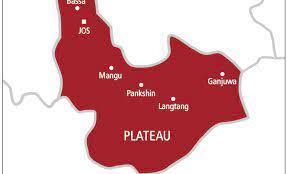Nuratu Oyetunji AbdulRasheed
Politics in Nigeria is at an alarming stage whereby winning elections is now a do or die affair and politicians feel they must rule by force. This situation is creating a scenario of panic in the society.
The inability of many politicians to secure election tickets from their political parties has led to the defection saga, which has created more tension between political parties jostling for the same offices.
Incidentally, this however, has diverted the focus of the government in its war against insurgency thus leading to the ineffectual handling of terrorists’ activities the Boko-Haram insurgency, crude oil theft, kidnapping, armed robbery among others.
Hundreds of thousands of lived have been lost while property worth billions has been lost to these crimes. In addition, government also lost considerable revenue through activities of pipeline vandals and crude oil thieves in the littoral states and on the high seas. Some statistics indicate that over one million Nigerians have been displaced and now live in camps or seeking refuge with friends and relatives.
In all of these, the phenomenon of a failed state might be expected, thus leading to the development of mass-based social movement to address the typically ensuring social problems. Nigeria is surely at a dreadful precipice with the pervading problems being a complex blend of social, political, religious, ethnic, legal and constitutional. Issues now that bedevil the country are of such proportions never before experienced in the turbulent history of this nation.
These issues, if not properly managed alongside other instrument of state policy might be catastrophic.
Partisan politics should be cast aside for now and more focus put into tackling the problems we are facing because Nigeria is clearly a nation at war with itself. The path in which we are treading is a threat to the continued peace, unity and prosperity of a place we call our home.
This is not the Nigeria we inherited from our predecessors; this is not the Nigeria we envisioned as young men/women.
Our leaders need to trail carefully and focus more on pressing matters facing the nation at hand irrespective of political parties, because events unfolding from Boko Haram insurgency, political violence, corruption, nepotism, tribalism, indiscipline, abduction, kidnapping, murder and extortion among others, are clear indicators of a failing state.
The current political crisis in the country from party defection, national assembly saga with the IGP (Suleiman Abba) can be said to be as a result of the weakness of the political leadership, the struggle for the control of state resources by the political class to attract the state wealth to themselves and their individual sections. This tendency has obviously created a situation of political uncertainties leading to political insecurity. The impact of any unstable political structure can have major effect on any given state.
In order for this crisis facing us as a country not to escalate into a civil war or the breakup of Nigeria, politicians or politics should not be a do or die affair. Rather, the growth and development of the country should be the main focus for our politicians.
In another vein, the political leadership should create structures and institutions that encourage good governance, which will promote equality, justice and adequate participation in the political process without discrimination.
In addressing the challenges to the survival of democracy in Nigeria, it is pertinent to consider the security issues and problems that have affected or capable of affecting the attitude, confidence and co-operations of all the groups and segments that make up the Nigeria federation.
It is however, necessary to explore the gaps and gray areas in the gaps and gray area in the national constitution that are responsible for various problems and crisis and how these gaps can be address.
It is only when these gaps are address that we can have a way forward.
AbdulRasheed
Wuye District, Abuja



